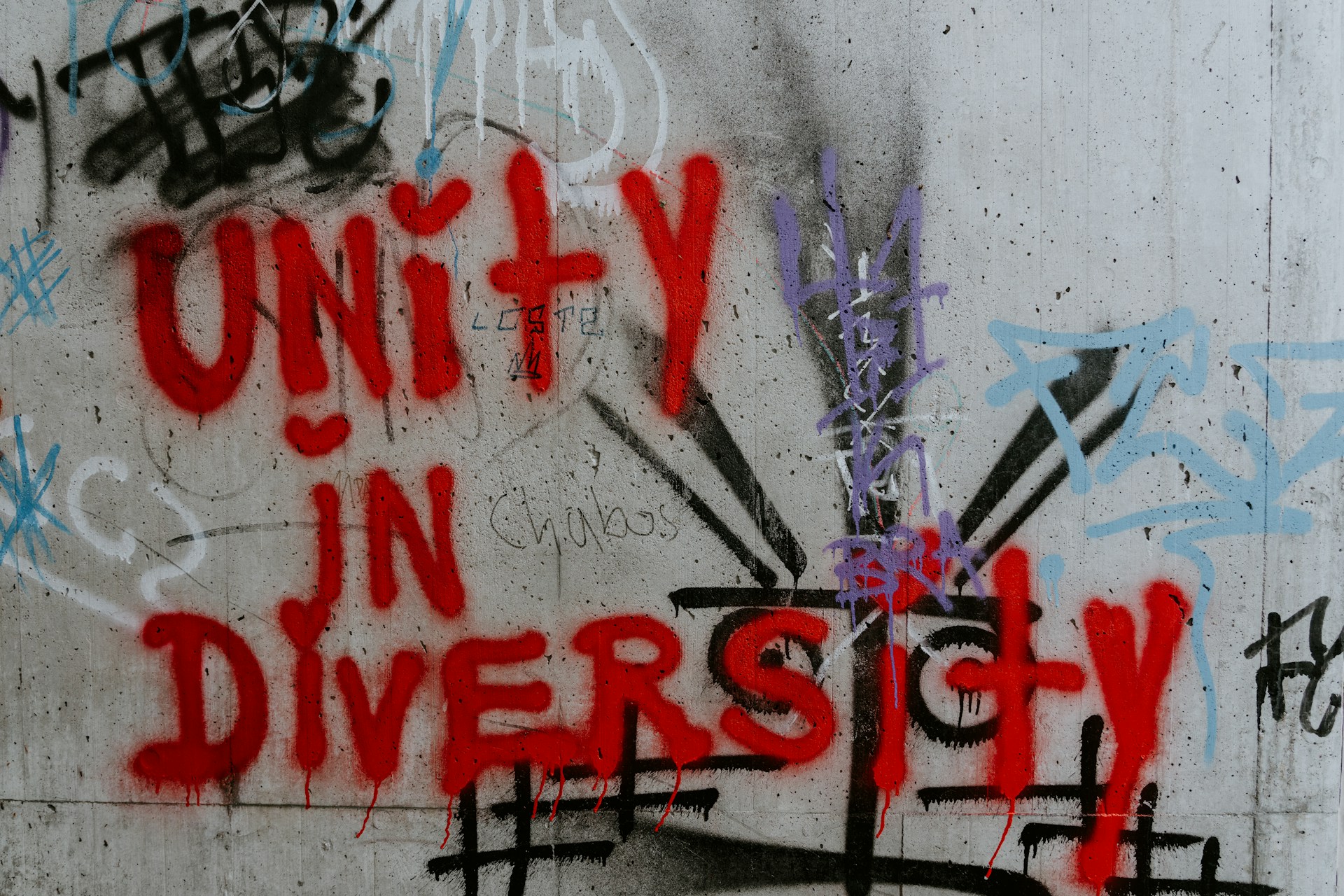In recent years, the spotlight on racial injustice has intensified, shedding light on the pervasive nature of systemic oppression and discrimination. The effects of such trauma can be profound, seeping into every aspect of an individual’s life and impacting their mental and emotional well-being. In response, counseling tailored to address racial trauma has become increasingly vital in helping individuals navigate and heal from these deeply ingrained wounds.
Understanding Racial Trauma

Racial trauma is a deeply impactful phenomenon that arises from the experience of racism and discrimination. It’s not just about isolated incidents of prejudice; rather, it encapsulates the enduring effects of systemic oppression and historical injustices that have permeated society for generations. This trauma penetrates every aspect of an individual’s life, influencing their sense of self-worth, identity, and overall well-being.
The effects of racial trauma are multifaceted, often manifesting in a myriad of psychological and emotional responses. Individuals who have experienced racial trauma may grapple with persistent feelings of anxiety, stemming from the constant threat of discrimination and violence. They may also experience profound sadness and hopelessness as they confront the reality of systemic barriers that limit their opportunities and freedoms.
Racial trauma can evoke intense anger and frustration at the injustice and inequality inherent in society. This anger is not merely a reaction to individual acts of prejudice but is fueled by the recognition of the broader systemic forces that perpetuate discrimination and oppression. Additionally, racial trauma can instill a sense of helplessness and powerlessness, as individuals confront the enormity of the challenges they face in navigating a world that devalues their humanity.
Understanding the unique challenges faced by individuals who have experienced racial trauma is essential for providing effective support and treatment. It requires acknowledging the systemic nature of racism and discrimination and recognizing the profound impact they have on individuals’ mental and emotional well-being. By validating their experiences and affirming their humanity, therapists can create a safe and empowering space for individuals to heal from racial trauma and reclaim their sense of agency and resilience.
Through culturally sensitive approaches and a commitment to social justice, counselors can play a crucial role in helping individuals navigate the complex terrain of racial trauma and work towards healing and empowerment. By addressing the root causes of systemic oppression and discrimination, therapists can empower individuals to confront and overcome the effects of racial trauma, fostering resilience and promoting positive change in both individual lives and society as a whole.
The Impact of Systemic Oppression

Systemic oppression, also known as institutionalized oppression, is a pervasive and insidious force that permeates every facet of society. It refers to the entrenched practices, policies, and structures that perpetuate discrimination and inequality based on race. These systems of oppression, which include institutional racism, structural discrimination, and implicit biases, operate at both the macro and micro levels, shaping everything from government policies to individual interactions.
At the heart of systemic oppression is the notion of power dynamics, where certain groups are systematically privileged while others are marginalized and disadvantaged. This manifests in various forms, such as unequal access to resources, limited opportunities for advancement, and disparate treatment within institutions like healthcare, education, and the criminal justice system. For example, racial disparities in healthcare access and outcomes are well-documented, with Black and Indigenous individuals experiencing higher rates of illness and mortality compared to their white counterparts.
The consequences of systemic oppression are far-reaching and profound, extending beyond material disparities to impact individuals’ mental health and well-being. Constant exposure to discrimination and marginalization can erode individuals’ sense of self-worth and belonging, leading to feelings of powerlessness, alienation, and despair. This chronic stress and trauma can contribute to the development of mental health disorders such as anxiety, depression, and post-traumatic stress disorder (PTSD), further exacerbating individuals’ suffering.
Systemic oppression perpetuates a cycle of intergenerational trauma, wherein the effects of historical injustices are passed down through generations. The trauma inflicted by centuries of slavery, colonization, and systemic racism continues to reverberate through communities today, shaping individuals’ lived experiences and collective consciousness. This intergenerational trauma compounds the effects of systemic oppression, perpetuating cycles of poverty, violence, and despair.
Recognizing the impact of systemic oppression is essential for understanding the complexities of racial trauma and providing effective support and intervention. Therapists must acknowledge the structural forces that contribute to individuals’ suffering and work collaboratively with clients to navigate the intersecting layers of oppression they face. By addressing the root causes of systemic injustice and advocating for social change, counselors can empower individuals to reclaim their agency, heal from racial trauma, and work towards building a more equitable and just society.
The Role of Counseling in Healing

Counseling for racial trauma serves as a crucial avenue for individuals to embark on their healing journey in a safe and supportive environment. This form of therapy provides a dedicated space where individuals can freely express their emotions, confront their experiences, and navigate the complex emotions associated with racial trauma. Within this therapeutic setting, clients are met with compassion, empathy, and understanding, fostering an atmosphere of trust and validation.
Therapists specializing in racial trauma counseling undergo extensive training to cultivate cultural competence and sensitivity. They recognize the unique challenges faced by marginalized communities and acknowledge the intersecting layers of oppression that shape individuals’ experiences. By adopting a culturally sensitive approach, therapists create a space where clients feel seen, heard, and valued, validating their lived experiences and affirming their humanity.
Through counseling, clients are empowered to confront and process the impact of systemic oppression and discrimination on their mental health and well-being. Therapists work collaboratively with clients to explore coping strategies, develop resilience skills, and foster a sense of agency in navigating their healing journey. This may involve addressing internalized beliefs and biases, challenging negative thought patterns, and cultivating self-compassion and self-care practices.
Counseling for racial trauma enables individuals to reclaim their sense of agency and resilience in the face of adversity. By fostering a deeper understanding of the roots of their trauma and the societal forces at play, clients are empowered to challenge oppressive systems and advocate for social change. Through this process of empowerment, individuals can harness their strengths and resources to navigate the complexities of racial trauma and work towards healing and liberation.
In essence, counseling for racial trauma plays a pivotal role in facilitating healing, empowerment, and resilience in the face of systemic oppression and discrimination. By providing a safe and validating space for individuals to explore their experiences and develop coping strategies, therapists empower clients to reclaim their agency and rewrite their narratives. Through this collaborative and transformative process, individuals can embark on a path towards healing, growth, and liberation.
Empowerment and Advocacy

Counseling for racial trauma extends beyond providing emotional support; it serves as a platform for empowerment and advocacy, empowering individuals to navigate the complexities of systemic oppression and discrimination. Therapists adopt a collaborative approach, working hand in hand with clients to develop resilience strategies tailored to their unique experiences and needs. Together, they explore avenues for healing and growth, promoting self-care practices that nurture mental, emotional, and spiritual well-being.
In the therapeutic space, individuals are encouraged to reclaim their sense of agency and autonomy in confronting systemic injustices. Therapists validate clients’ experiences and perspectives, affirming their worth and resilience in the face of adversity. Through this validation, individuals gain the confidence to challenge oppressive systems and advocate for social change, both within themselves and in their communities.
Empowerment in counseling for racial trauma also involves fostering a sense of community and solidarity among individuals who share similar experiences. Therapists facilitate connections with support networks and advocacy groups, providing opportunities for individuals to share their stories, learn from one another, and mobilize collective action. By fostering a sense of belonging and camaraderie, therapy becomes a catalyst for empowerment, amplifying individuals’ voices and fostering a sense of collective agency.
Furthermore, counseling for racial trauma encourages individuals to reclaim cultural pride and resilience as sources of strength in their healing journey. Therapists honor clients’ cultural heritage and identity, recognizing the resilience and resistance that have sustained marginalized communities throughout history. Through cultural exploration and celebration, individuals reconnect with their roots, drawing inspiration and strength from their ancestors and cultural traditions.
Empowerment and advocacy in counseling for racial trauma empower individuals to become agents of change in their own lives and communities. By cultivating resilience, promoting self-care, and fostering a sense of cultural pride and solidarity, therapists empower clients to navigate the complexities of racial trauma with courage and resilience. Together, they work towards dismantling oppressive systems and building a more just and equitable society for future generations.
Navigating the Healing Journey

Healing from racial trauma is not a linear process but rather a journey filled with ups and downs, setbacks, and breakthroughs. It requires individuals to embark on a path of self-discovery, resilience, and empowerment as they confront the lingering effects of systemic oppression and discrimination. Recognizing that healing is a multifaceted and ongoing process is crucial for individuals as they navigate the complexities of their trauma.
Central to the healing journey is the importance of seeking out resources and communities that affirm individuals’ identities and provide a sense of belonging. This may involve connecting with cultural and support groups that share similar experiences, where individuals can find validation, understanding, and solidarity. Building a support network of trusted allies who validate and uplift their experiences is essential in fostering a sense of community and connection.
Prioritizing self-care is another crucial aspect of the healing journey. Individuals are encouraged to engage in activities that nurture their mental, emotional, and physical well-being, whether it’s through mindfulness practices, creative expression, or spending time in nature. Self-care serves as a form of resilience, allowing individuals to replenish their energy and cope with the challenges they may encounter along their healing path.
Seeking support from mental health professionals who specialize in racial trauma counseling can provide individuals with invaluable guidance and tools for navigating their healing journey. Therapists offer a safe and nonjudgmental space for individuals to explore their experiences, process their emotions, and develop coping strategies tailored to their needs. Through therapy, individuals can gain insights, tools, and perspectives that empower them to navigate their trauma with resilience and strength.
Engaging in advocacy efforts can also be a powerful form of healing and empowerment. By speaking out against systemic injustices and advocating for change, individuals reclaim their agency and work towards creating a more equitable and just society. Whether it’s through grassroots organizing, community activism, or policy advocacy, individuals can channel their experiences into meaningful action that promotes healing not only for themselves but for future generations.
Navigating the healing journey from racial trauma requires individuals to cultivate resilience, seek support, and engage in advocacy efforts that empower them to reclaim their agency and heal from the impact of systemic oppression and discrimination. By prioritizing self-care, seeking support from trusted allies, and advocating for change, individuals can embark on a path of healing, empowerment, and transformation.
Conclusion
Counseling for racial trauma offers a vital pathway to healing in the midst of systemic oppression and discrimination. Therapists provide a safe and validating space for individuals to confront their experiences, develop coping strategies, and reclaim their agency. Through culturally sensitive approaches and advocacy efforts, individuals are empowered to navigate their healing journey with resilience and courage. Prioritizing self-care, seeking support from trusted allies, and engaging in advocacy efforts become essential components of this journey. Ultimately, counseling serves as a beacon of hope, fostering empowerment, resilience, and growth in the face of racial trauma and injustice.




